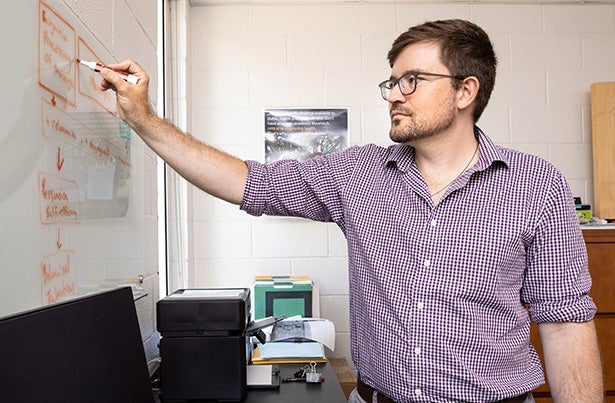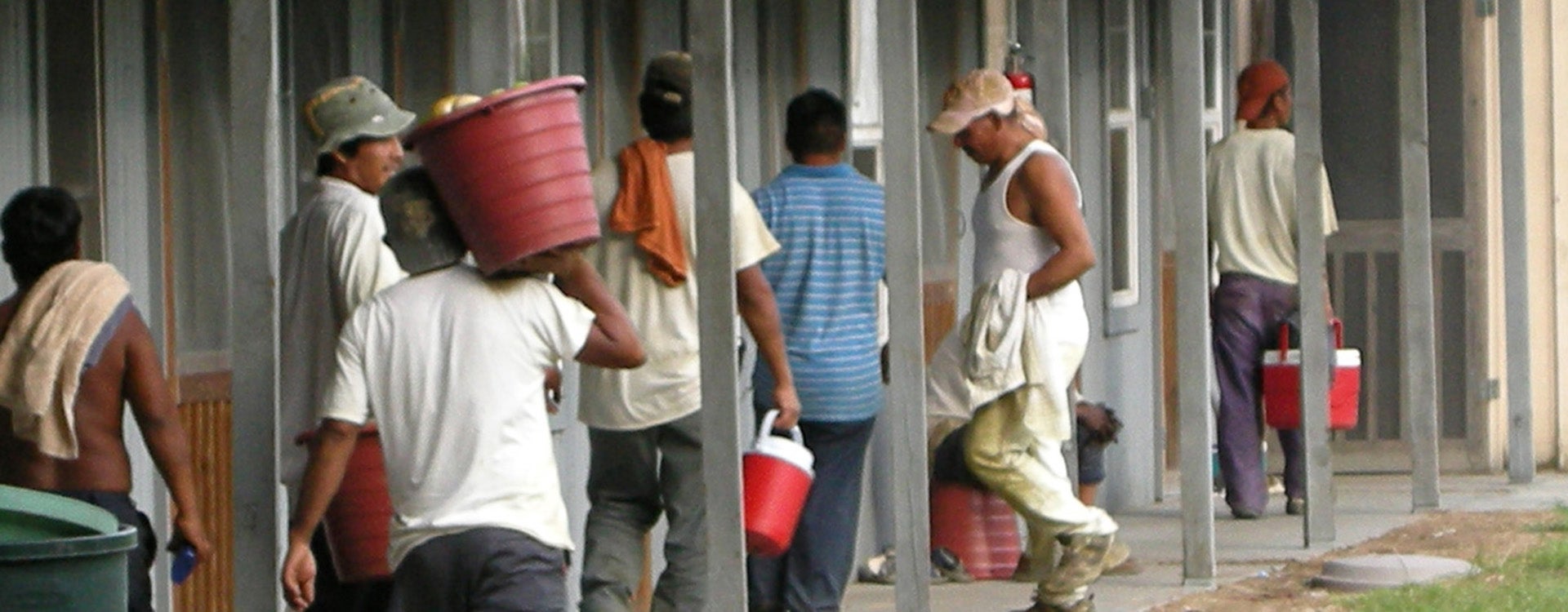HEALTHY FARMWORKERS
New grant will help ECU, collaborators get information to migrant, seasonal workers
Heat-related illnesses, pesticide exposure and other occupational hazards face migrant and seasonal farmworkers each day.
But a new three-year, $427,551 health disparities grant from the National Institutes of Health’s National Library of Medicine will help East Carolina University and its collaborators address those challenges by getting much-needed information into farmworkers’ hands.
ECU, N.C. State University’s extension toxicology program and Student Action with Farmworkers are leading the effort. Additional organizations supporting the work are the N.C. Farmworker Health Program and the N.C. Community Health Center Association.
“We developed this project because everyone deserves the ability to access high-quality health information,” said Dr. Joseph G.L. Lee, associate professor and assistant chair of the Department of Health Education and Promotion in the College of Health and Human Performance. Lee, the project’s principal investigator, is also an affiliated faculty member in the Center for Health Disparities in the Brody School of Medicine.
North Carolina ranks sixth in the nation in the number of migrant farmworkers, with approximately 150,000 seasonal and migrant farmworkers and their dependents in the state each growing season, according to Student Action with Farmworkers (SAF). Major crops requiring farm laborers include tobacco, Christmas trees, sweet potatoes, cucumbers, apples, bell peppers, and other fruits and vegetables. Farmworkers also are employed in nurseries and greenhouses.
The grant project will take a three-level approach to promote health literacy among migrant and seasonal workers across North Carolina:
- Identify and assess health information designed for farmworkers and promote the submission of evidence-based education materials to the National Library of Medicine’s (NLM) HealthReach database;
- Increase knowledge of NLM resources for farmworker health outreach workers and pilot technology to enhance education in combination with professional development opportunities;
- Provide Wi-Fi hot spots and access to the internet in combination with health literacy training at farmworker youth programs and migrant labor camps.
“This grant represents an investment by the National Library of Medicine in better access to health information for North Carolina farmworkers and their families,” Lee said.
ECU researchers will collect health education materials that range from fact sheets and pamphlets to comic books and videos, Lee said. The materials will be evaluated for readability and quality, and then submitted to NLM’s HealthReach to assist farmworker health providers.
“Most of these materials are being distributed by health outreach workers or community health workers who visit migrant labor camps to provide information, connect people with the clinic, and do brief screenings,” Lee said. “The goal is to give these outreach workers better tools to use.”
ECU’s team includes Dr. Leslie Cofie in the Department of Health and Human Promotion, Dr. Gina Firnhaber, previously at Laupus Library and now in the College of Nursing, and Jamie Bloss in the library. Several students will also be involved in the project.
Dr. Catherine LePrevost and colleagues at NCSU will be responsible for testing technology to help outreach workers visiting migrant and seasonal farmworker labor camps.
Melinda Wiggins, executive director of SAF, and her team will work with community partners across the state to install and maintain internet access points in labor camps.
“We are excited to partner with NCSU and ECU to increase farmworkers’ access to technology and to facilitate communication with their families back home to positively impact their mental health,” Wiggins said.
The nonprofit SAF’s mission is to bring students and farmworkers together to learn about each other’s lives, share resources and skills, improve working conditions, and build diverse coalitions for social change.
The grant builds on a pilot project between ECU, Joyner Library and SAF funded in 2017 by the National Network of Libraries of Medicine.


